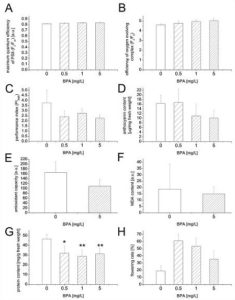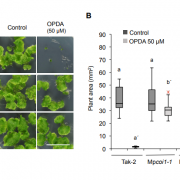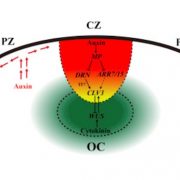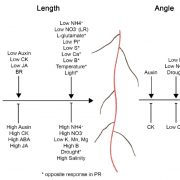The effect of bisphenol A on growth, pigment composition and photosystem II activity of Arabidopsis thaliana
 Many of the plastic consumables we have at home contain synthetic chemical BPA (Bisphenol A). In 1930, a UK scientist discovered that BPA weakly mimics the human hormone estrogen. It has also been found that tiny amount of BPA can leach out of plastic (Stanford University). Thus, there has been a heightened interest on the safety of BPA in our food as consumers and it has also piqued interest in scientific studies. The plastic waste in our environment exposes BPA to plants. Does BPA have an effect on plant growth and development? This paper describes the effect of BPA on toxicity and development of Arabidopsis thaliana. Acta Biochimica Polonica 10.18388/abp.2017_1626.
Many of the plastic consumables we have at home contain synthetic chemical BPA (Bisphenol A). In 1930, a UK scientist discovered that BPA weakly mimics the human hormone estrogen. It has also been found that tiny amount of BPA can leach out of plastic (Stanford University). Thus, there has been a heightened interest on the safety of BPA in our food as consumers and it has also piqued interest in scientific studies. The plastic waste in our environment exposes BPA to plants. Does BPA have an effect on plant growth and development? This paper describes the effect of BPA on toxicity and development of Arabidopsis thaliana. Acta Biochimica Polonica 10.18388/abp.2017_1626.









